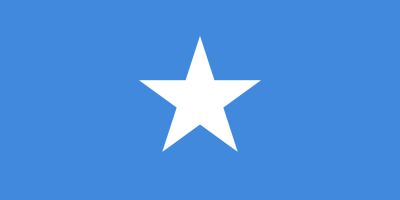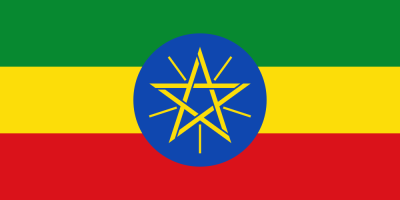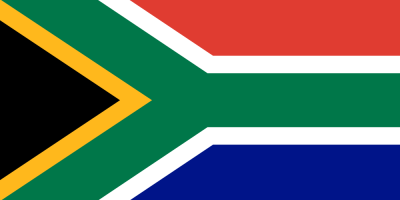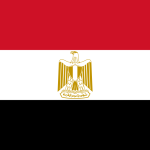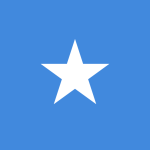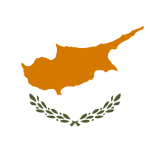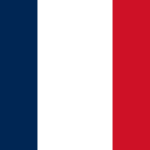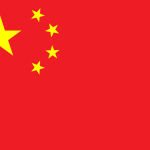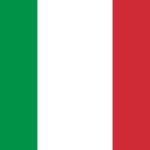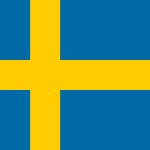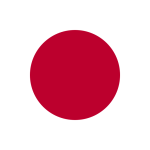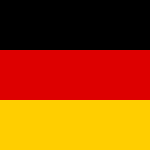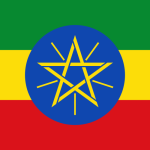Gabon flag color codes makes a bold statement. If you want to accurately recreate the lush colors of this striking banner for any digital or print application, having the precise Gabon flag color codes is key. In this guide, you’ll find the definitive specifications including HTML HEX, RGB, PANTONE, HSL, CMYK, HWB and NCOL values for the Gabonese flag’s vibrant shades. With quick access to the official Gabon flag color codes, you’ll be able to incorporate this patriotic symbol into graphic design, websites, apparel and more with total accuracy. Keep reading to get the essential color format values and learn what each vivid tone represents on the national emblem of Gabon.
Table of Contents
What are the colors of Gabon flag?
The colors of the Gabon flag are:
- Green – Covers almost three equal horizontal stripes on the flag. Represents the forested landscape of Gabon and its wildlife.
- Yellow – Features on the final bottom stripe of the flag. Symbolizes the Equator which cuts through Gabon giving it a hot climate.
- Blue – Seen in the canton which takes up the top left corner of the flag. Represents the ocean and waterways of Gabon.
So in summary, the three colors represented on the national flag of Gabon are green, yellow, and blue. The dominant green reflects Gabon’s lush forests, while yellow depicts the Equator and blue symbolizes Gabon’s bodies of water.
Gabon flag color codes & Color Names:
GREEN
| Color Model | Value |
|---|---|
| HTML | #008749 |
| HEX | 0, 135, 73 |
| RGB | rgb(0, 135, 73) |
| PANTONE | 3435 C |
| HSL | hsl(147, 100%, 26%) |
| CMYK | 100%, 0%, 46%, 47% |
| HWB | hwb(147, 0%, 47%) |
| NCOL | 7500 N |
YELLOW
| Color Model | Value |
|---|---|
| HTML | #FCD116 |
| HEX | 252, 209, 22 |
| RGB | rgb(252, 209, 22) |
| PANTONE | 116 C |
| HSL | hsl(49, 100%, 54%) |
| CMYK | 0%, 17%, 91%, 1% |
| HWB | hwb(49, 9%, 1%) |
| NCOL | 6024 N |
BLUE
| Color Model | Value |
|---|---|
| HTML | #00A1DE |
| HEX | 0, 161, 222 |
| RGB | rgb(0, 161, 222) |
| PANTONE | 298 C |
| HSL | hsl(198, 100%, 43%) |
| CMYK | 100%, 4%, 0%, 13% |
| HWB | hwb(198, 0%, 13%) |
| NCOL | 4036 N |
What is the meaning of colors in the Gabon flag?
The meanings of the colors in the Gabon flag are:
Green – Represents the dense equatorial forests and rich wildlife that covers over 85% of Gabon’s landscape.
Yellow – Symbolizes the country’s position along the Equator which gives it a hot climate and abundant sunshine all year-round.
Blue – Depicts the ocean, rivers, and waterways along Gabon’s coastline and throughout its terrain.
In summary:
- Green: Lush forests and wildlife
- Yellow: The Equator and sunny climate
- Blue: Oceans, rivers and streams
The vivid green stripe dominates the flag, reflecting Gabon’s iconic rainforests brimming with biodiversity. Yellow denotes the country straddling the Equator which brings heat and sunshine. Finally, blue signifies Gabon’s water bodies along its coastal and inner regions.
Explore More Flag Colors:
- Cambodia Flag Color Codes
- Libya Flag Color Codes
- Mauritius Flag Color Codes
- North Korea Flag Color Codes
FAQs: Frequently Asked Questions:
Is Gabon a rich or poor country?
Gabon is considered one of the wealthier countries in Africa due to its significant oil reserves and production. However, the distribution of wealth in the country is uneven, and there are challenges related to economic diversification, social development, and reducing income inequality.
It’s important to note that economic conditions can change, and it’s recommended to check more recent sources for the latest information on Gabon’s economic status.
What is the main problem in Gabon?
Gabon faces various challenges, and the main problems in the country can be multifaceted. Some of the key issues include:
Economic Dependency: Gabon’s economy has historically been heavily dependent on oil exports. This reliance poses a risk to the country’s economic stability, especially when global oil prices fluctuate.
Income Inequality: Despite its oil wealth, there is significant income inequality in Gabon. A substantial portion of the population may not benefit equally from the country’s economic resources.
Corruption: Corruption has been a concern in Gabon, impacting governance, economic development, and public services. Addressing corruption is crucial for fostering transparency and accountability.
Infrastructure Development: While there have been efforts to develop infrastructure, some areas in Gabon still face challenges in terms of transportation, healthcare, and education infrastructure.
Diversification of the Economy: The need to diversify the economy beyond oil is a recognized challenge. Developing other sectors such as agriculture, forestry, and tourism could contribute to long-term economic stability.
What is Gabon famous for?
Gabon is known for several notable features and attributes:
Rich Biodiversity: Gabon is home to diverse and lush rainforests, making it one of the most biodiverse countries in Africa. The country has a variety of wildlife, including forest elephants, gorillas, and a range of bird species.
Oil Reserves: Gabon is a significant oil producer in Africa. Oil extraction and exportation play a crucial role in the country’s economy.
Pristine Natural Landscapes: The country’s landscapes include not only rainforests but also beautiful coastlines, rivers, and national parks. Loango National Park, for example, is known for its stunning mix of beaches, savannas, and forests.
Libreville: The capital city, Libreville, is known for its modern architecture, vibrant markets, and cultural attractions. The city is situated on the coast, providing scenic views of the Atlantic Ocean.
Petrochemical Industry: Apart from oil, Gabon has been working on developing its petrochemical industry, which contributes to the country’s economic activities.
Omar Bongo Ondimba: Gabon was ruled by Omar Bongo Ondimba for over four decades until his death in 2009. He was one of Africa’s longest-serving leaders and played a significant role in the country’s political history.
Is Gabon a highly developed country?
Gabon is considered a middle-income country with a relatively higher GDP per capita compared to many other African nations. However, the classification of “highly developed” is typically associated with countries that have advanced industrialization, high standards of living, and a well-developed infrastructure across various sectors.
While Gabon has a significant oil industry that contributes substantially to its economy, it faces challenges such as income inequality, over-reliance on oil, and the need for economic diversification. Additionally, factors like healthcare, education, and social development indicators may not place Gabon in the category of highly developed countries.
How many Muslims live in Gabon?
Gabon has a religiously diverse population, with a significant Christian majority. Islam is a minority religion in Gabon, constituting a smaller percentage of the population. The exact number of Muslims in Gabon can vary, and specific statistics may not be readily available or up-to-date.
For the latest and most accurate information on the religious demographics of Gabon, it is recommended to refer to recent census data, official government reports, or surveys conducted by reputable organizations that gather demographic information. Keep in mind that demographic figures can change over time, and the most accurate and current data is typically obtained through official government sources or recognized international organizations.
How safe is Gabon?
Gabon is generally considered relatively safe for travelers. However, it’s important to note that safety conditions can change, and it’s advisable to check for the latest travel advisories and updates before planning a trip.
Key points regarding safety in Gabon:
Political Stability: Gabon has experienced periods of political stability, but like any country, political situations can change. It’s a good idea to stay informed about the current political climate before traveling.
Crime: While violent crime rates are generally lower than in some other African countries, petty crime such as pickpocketing and theft can occur, particularly in crowded areas and markets. Travelers are advised to take basic precautions to safeguard their belongings.
Health Concerns: Gabon is located in a region where diseases such as malaria are prevalent. It’s important for travelers to take appropriate health precautions, including vaccinations and malaria prophylaxis. Access to medical facilities may be limited in some areas.
Natural Hazards: Gabon is prone to occasional heavy rainfall and flooding, especially during the rainy season. Travelers should be aware of weather conditions, especially if planning to visit remote areas.
Is Gabon good to live?
The suitability of Gabon as a place to live depends on individual preferences, priorities, and circumstances. Here are some factors to consider:
1. Economic Opportunities: Gabon’s economy has been traditionally dependent on oil, but there have been efforts to diversify. The availability of suitable job opportunities and career prospects may influence your decision to live there.
2. Climate: Gabon has a tropical climate with high temperatures and humidity. If you enjoy warm weather, this could be an advantage. However, some people may find the climate challenging.
3. Cultural Diversity: Gabon is home to diverse ethnic groups, each with its own cultural traditions. If you appreciate cultural diversity and enjoy learning about different customs, Gabon could be an interesting place to live.
4. Cost of Living: The cost of living can vary, and it’s essential to consider factors such as housing, healthcare, and education costs. Researching the cost of living in specific areas can help you determine if it aligns with your budget.
5. Language: French is the official language of Gabon. If you are proficient in French or willing to learn, it can enhance your experience in daily life and communication.
Why is Gabon expensive?
Gabon can be perceived as expensive for several reasons:
Reliance on Oil: Gabon’s economy has historically been heavily dependent on oil exports. The volatility of oil prices in the global market can significantly impact the country’s economic stability. If the cost of living is high, it may be influenced by the country’s reliance on oil revenue and the associated economic dynamics.
Imported Goods: Like many other countries, Gabon may import a significant portion of its goods. Dependence on imported products can contribute to higher prices due to transportation costs, import duties, and other factors.
Limited Economic Diversification: The economy’s heavy reliance on oil revenue may result in limited economic diversification. If a country depends heavily on a single industry, it can lead to higher costs for goods and services that are not directly related to that industry.
Infrastructure Costs: Developing and maintaining infrastructure can be expensive. While major cities like Libreville may have relatively good infrastructure, the costs associated with infrastructure development and maintenance can contribute to the overall cost of living.
Limited Competition: In certain sectors, limited competition can contribute to higher prices. If there are fewer options for goods and services, businesses may have more control over pricing.
Why do people migrate to Gabon?
People may choose to migrate to Gabon for various reasons, and individual motivations can differ. Here are some common factors that may attract people to migrate to Gabon:
Employment Opportunities: Gabon has a relatively stable economy, with a significant portion of its revenue coming from oil production. This can create job opportunities in sectors related to oil and gas, as well as other industries as the country seeks to diversify its economy.
Natural Resources: Gabon is known for its rich biodiversity and natural resources. Individuals involved in sectors such as forestry, agriculture, or ecotourism may be attracted to Gabon due to its environmental assets.
Political Stability: Relative political stability in Gabon can be an attractive factor for individuals seeking a stable and secure environment. This stability may appeal to both local residents and expatriates.
Cultural Diversity: Gabon is home to diverse ethnic groups, each with its own cultural traditions. People interested in experiencing and embracing cultural diversity may find Gabon appealing.
Language Opportunities: French is the official language of Gabon. Individuals looking to improve their French language skills or work in a Francophone environment may see Gabon as an attractive destination.
Educational Opportunities: Gabon has made efforts to improve its education system. Individuals seeking educational opportunities, such as pursuing higher education or participating in research initiatives, may choose to migrate to Gabon.
Is English spoken in Gabon?
While French is the official language of Gabon, and the most widely spoken and used for official communication, English is not as commonly spoken. The linguistic landscape of Gabon is primarily French-speaking due to its colonial history. French is used in government, education, and business.

